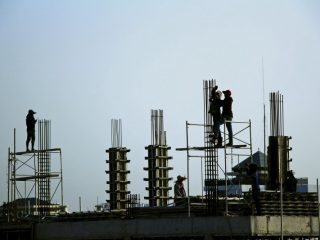It was just after 2PM when people started to notice the smoke over the rooftops. There were no sirens audible yet, but clearly a house was on fire — and around here, that means there’s a good chance the neighbours will lose their place too. In true citizen-journalist style, I grabbed my camera and headed down the street wearing only ‘slippers’ and shorts.
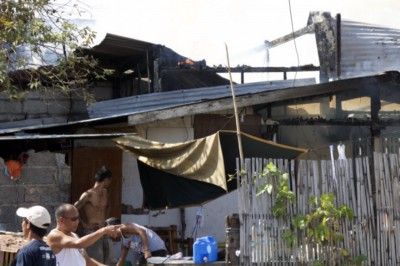
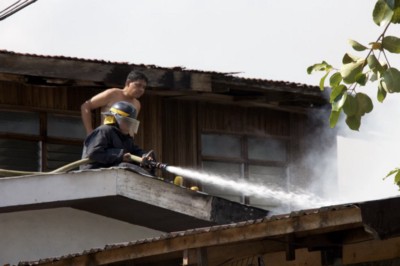
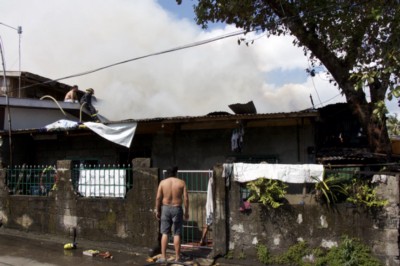
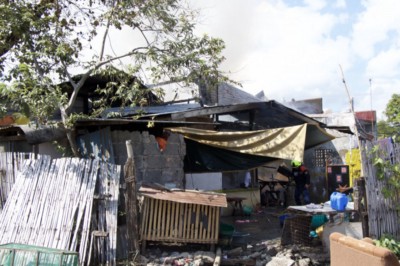
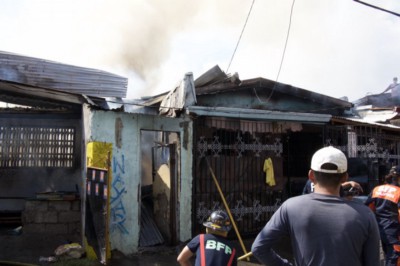
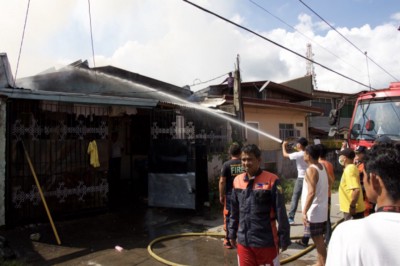
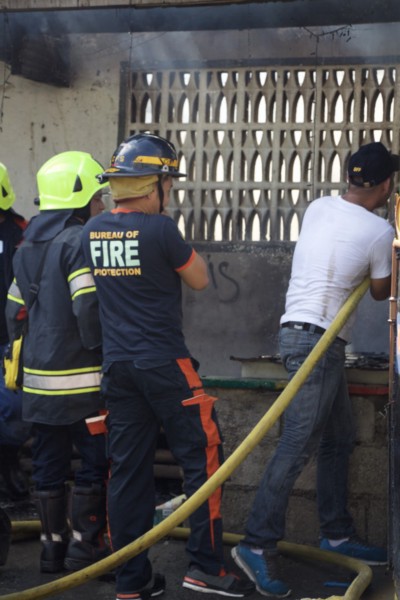
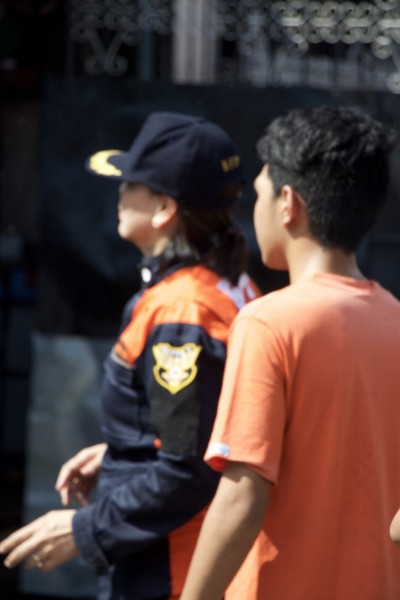
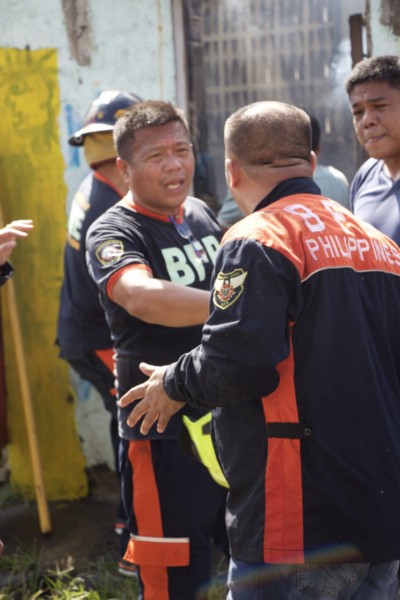
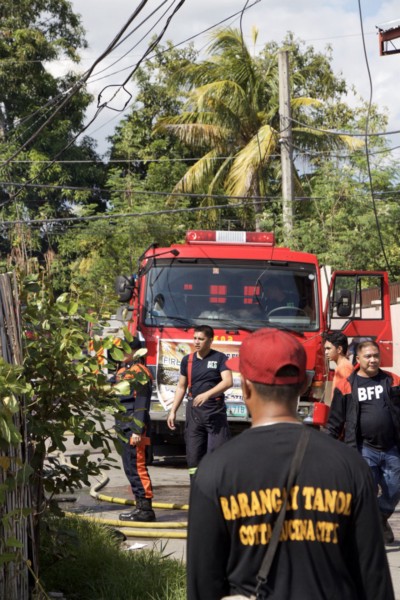
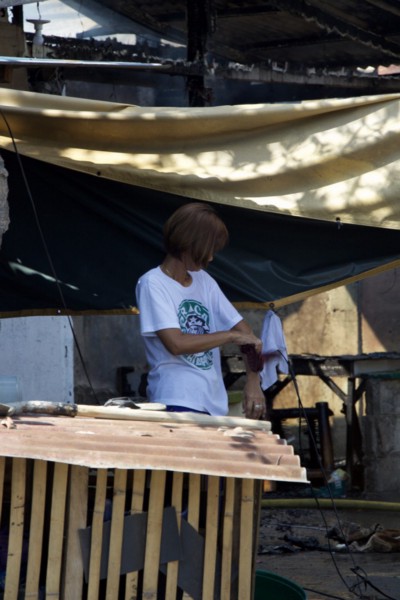
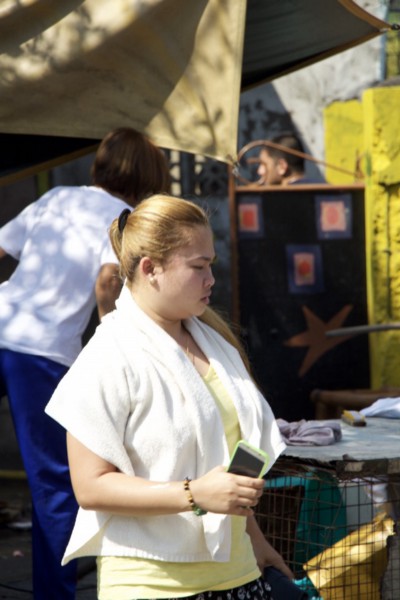
I only had to slip down ‘eskinita’ and on to the next road to see the crowd gathering. As I got closer, my fears were confirmed — two houses were already ablaze, the Bureau of Fire Protection trucks had just arrived, and the crowd were watching this all-too-familiar occurrence with morbid curiosity to see if a third property would succumb. The eaves had been momentarily alight but it appeared the firefighters were fighting back and may just be able to save it.
As I watched and photographed, I noticed a woman standing amongst the crowd of onlookers who was struggling to fight back tears. Apparently she was one of the occupants of the home, and she was helpless to stop the fire as she watched it raze her precious few possessions. The family had managed to drag a few chairs and a couch out, but there didn’t appear to be much else they had saved.
Of course, many families around here don’t have a lot to begin with. But as with people all around the globe, the things they treasure most are the irreplaceable mementoes that hold sentimental memories — photos, soft toys, gifts from a loved one.
When I asked a supervisor if they knew the cause of the fire, they responded “it’s an old house” — which is their way of saying it was probably in poor condition and has likely experienced some kind of electrical fault. I confirmed with him that was what he meant.
The more time I spend in Philippines, the more I’m becoming convinced that a massive contributor to poverty is not just a lack of resources, but the mismanagement and poor use of those resources. People wire their houses in the most bizarre manner and don’t take basic safety precautions, not for lack of materials but for lack of knowledge or concern. Similarly, so much of the infrastructure built here degenerates years ahead of when it should due to poor workmanship and lack of care during construction. Concrete crumbles, steel rusts, pipes corrode, electricity poles become unstable, road surfaces become dangerously rough, internet connections experience outages and line quality issues, in a matter of months or a few short years — not just because of the harsh tropical weather (which is undoubdedly a contributing factor) but because those who installed them in the first place did not have the expertise or concern to ensure the job was done properly in the first place.
Now two families in Cotta have lost “everything” and are scrambling to rebuild.
As is usually the case in any developing country, people are resilient and they find a way. Their lives have always been about survival, and this latest setback is no different. But it’s going to entrench them deeper into their poverty.
What’s likely to happen is that, in addition to drawing upon their network of family and friends (which is core to Philippines society), they may also need to borrow funds from a local lending business or a 5–6 lender. 5–6 lenders do exactly what the name suggests — they lend 5 pesos for a 6 peso repayment. That’s 20% interest — but in the space of a short, agreed time period, usually 45 days or less. In other words, equivalent to more than 200% per annum!
This is the second fire I’ve personally witnessed within a few streets of each other in the past 12 months. Fires in the Philippines are commonplace. They are frequently caused by poor electrical wiring, they frequently result in the loss of dozens of homes as the fire spreads from one home to other attached dwellings built in close quarters and with no regard for fire safety, they frequently take lives and cause serious injuries, and they always drag people further into financial stress and poverty.
When the smoke starts to rise above the rooftops in Philippines, I worry how several more families are going to survive.
